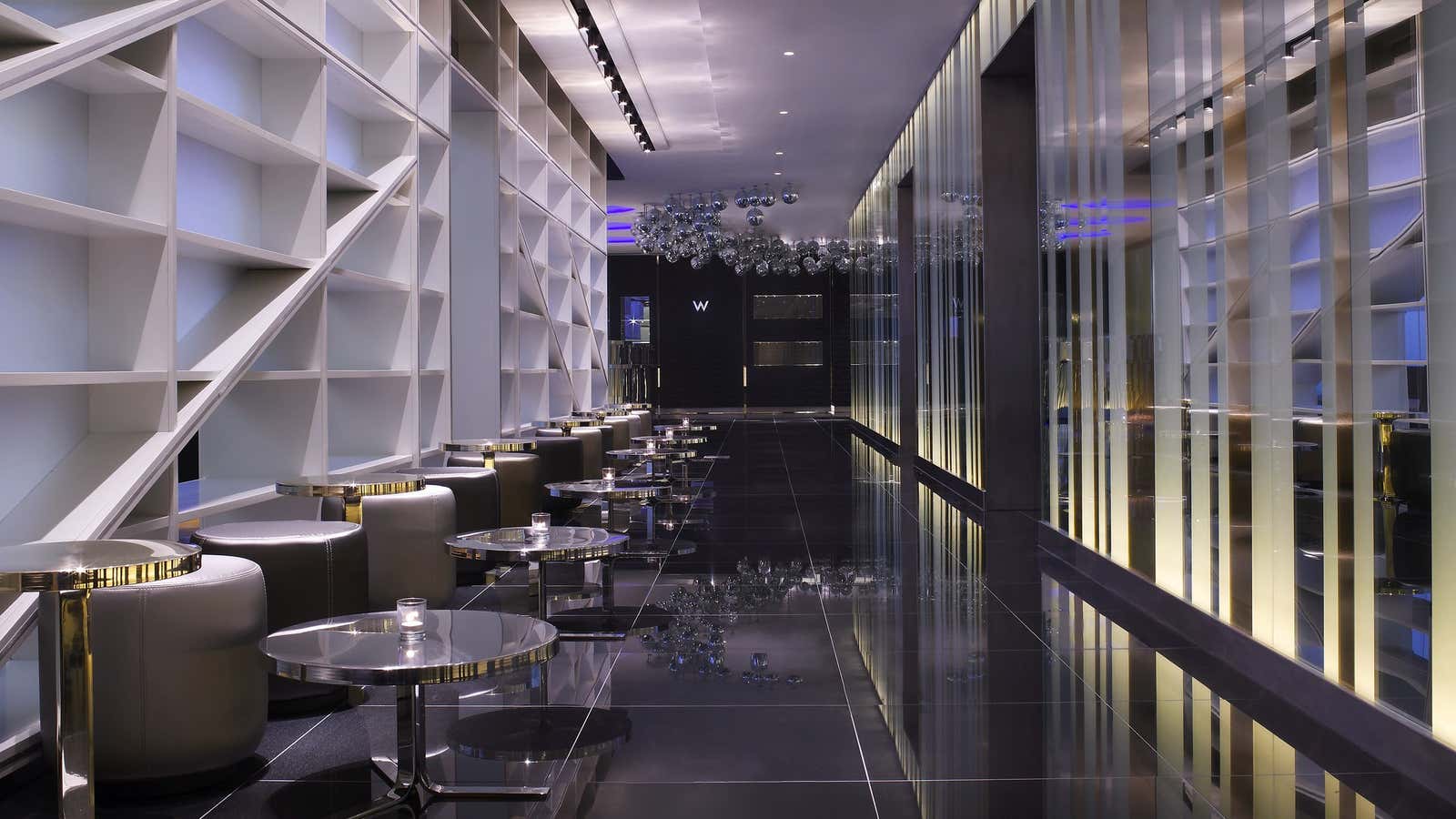Welcome to round three of the Starwood bidding war.
Anbang Insurance Group, a Chinese conglomerate, has raised its bid to buy Starwood Hotels and Resorts to almost $14 billion, Reuters reported today, March 28.
In round two, which played out over the last two weeks, Marriott International agreed to shell out $13.6 billion in cash and stock to acquire Starwood, a deal valued at $79.52 per share. That countered a $13.2 billion all-cash offer Anbang had made several days earlier, worth $78 per share. Marriott initially struck a deal to buy Starwood for $12.2 billion in cash and stock last November.
Starwood said in a statement that it received the new offer from Anbang over the weekend. The all-cash deal values Starwood at $82.75 per share. In its own statement, Marriott said it was still committed to acquiring Starwood.
Starwood’s stock was up a little more than 2% today, to $84 a share. Marriott’s stock rose about 4%, to around $71 a share.
Anbang is thought to be interested in acquiring Starwood to diversify its foreign assets, amid China’s continued economic slowdown. Many Chinese companies are attempting to do the same: This year, Chinese firms have already agreed to more than $100 billion in foreign deals, compared to the $106 billion exchanged throughout all of last year.
In February, government-owned ChemChina offered $43 billion in cash to buy Swiss pesticide and seed company Syngenta. A month earlier, General Electric struck a deal to sell its appliance business to China’s Qingdao Haier for $5.4 billion. The current Chinese shopping spree is drawing comparisons to that of Japanese companies in the 1980s, which included Mitsubishi’s purchase of Rockefeller Center.
Marriott’s motives are quite different. Sealing a merger with Starwood would create the world’s largest hotel chain, with 5,700 hotels and 1.1 million rooms globally. It would also give Marriott access to Starwood’s highly popular loyalty program, which could help Marriott retain its all-important business travelers and ward off competition from alternative lodging sites such as Airbnb and Homeaway.
In other words, Marriott’s bid for Starwood is about giving itself a strategic buffer in the hospitality industry. Asked last week what it would do if Anbang came back with a higher offer, Marriott CEO Arne Sorenson didn’t give a direct answer.
“We think we’ve teed up something which is compelling to Starwood shareholders in terms of upfront competition, and we think it’s compelling to the shareholders of the combined companies in terms of what we can accomplish,” he said. ”That is something that we think is unique … creating a platform which because it brings strength from two companies, has the ability to create enormous value.”
Now it’s up to Starwood to decide which merger philosophy it prefers.




